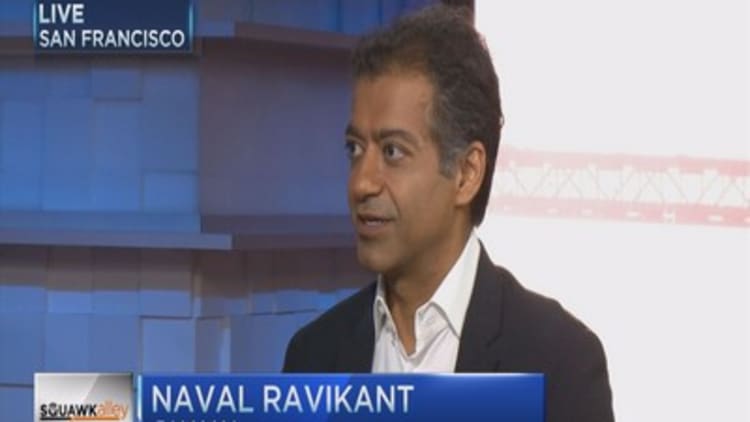Hunker down, because winter is coming.
That's increasingly the message heard around Silicon Valley, as investors tell start-up CEOs that money will be less easy to come by.
"Raise twice as much and make it last four times as long. Pretend that you don't have the money in the bank, run lean," said AngelList CEO Naval Ravikant. "Assuming your unit economics are at least breakeven, keep your headcount low, raise money and stay in it for the long haul. It takes a decade to build a great company. There's no shortcuts."
There is by no means consensus among investors on how to term the current frothiness, but more venture capitalists have now acknowledged the possibility of a private tech bubble. Fueled by last week's bumpy IPO of Pure Storage and layoffs at Twitter, Snapchat and others, the funding environment is shifting.
Of course, not all start-ups are on equally shaky ground, VCs say. "The best companies are still getting financed, but they're not getting financed quickly," said Kate Mitchell, Scale Venture Partners co-founder and former chairwoman of the National Venture Capital Association.
The shift in sentiment is affecting unicorns and seedlings alike. "We are starting to see that early stage money being a bit less profligate," said Mitchell. "Pricing has moderated a little bit, terms have become a bit less friendly, or more balanced I would say, between the investor and the company."

For investors looking to strike deals, the "pricking" of the bubble, as Mitchell describes it, is good news. "There is not as much competition, more time to sort through the due diligence and more time to really think about the price, and you start to see pricing expectations come down."
And for start-ups with proven business models and venture capitalists looking for better deal terms, the current market presents an opportunity. "That's when some of the best companies get formed, and I think a lot of CEOs actually believe their performance on an efficiency basis typically goes up," said Mitchell.
"There is a flight to quality," said start-up company lawyer Yokum Taku, a partner at Wilson Sonsini Goodrich & Rosati. "If a company is throwing off $10 million a year in recurring revenue, that means the technology works. For companies that reach those type of metrics, there's a lot of money available."
"You want to look for entrepreneurs who is are in it for the very, very long haul. They have a lot of conviction. They don't spend a lot of money and they're dedicated to seeing business through almost no matter what the circumstances," said Ravikant. "When push comes to shove these companies really can survive, and they're very, very resilient. These are young people with low burn rates and high ambitions."
But for anyone without a clear path to profitability, the days of burning through easy venture capital cash are numbered. Mitchell points to the recent bumpy IPO the public markets served up for Pure Storage as evidence of a shift in sentiment. "If your growth demands a high level of burn like Pure Storage, I think people are more skeptical," said Mitchell. "The market's saying "I'm going to back off that valuation."
Those who are most vulnerable? "Any of those unicorns that are burning a lot of cash," said Mitchell. Ravikant agrees: "One position you don't want to be in right now is you don't want to be a company burning tens of millions a year and hoping to raise about another $200 million around the corner. After the recent market correction my sense [is] late-stage investing is slowing down as well."
As Silicon Valley cautiously surveys a landscape unusually filled with late-stage start-up behemoths, people are growing increasingly anxious for some of the so-called unicorns — companies valued at $1 billion or more.
"The closer you get to being a public company, the more people can see the metrics and more they bid up the prices," said Ravikant. "We know what a dominant force they are and know that they need to spend a lot to compete, all of these companies," Mitchell said. "But is that generating profitability for them?"
Of course, given the closely guarded private nature of start-up financials, it's hard to know which companies are well positioned to weather the storm.
"I do think when you look at companies like Dropbox and others, clearly there is some sentiment out there that they are thoughtfully thinking about right-sizing, that's obviously what's going on," said Mitchell. Still, Mitchell cautions calling out individual start-ups and highlights Facebook as an example of just how wrong investor sentiment can be.
"[Facebook] had a much better path to profitability and was much more profitable ultimately when it went public than any of us assumed," she said.




